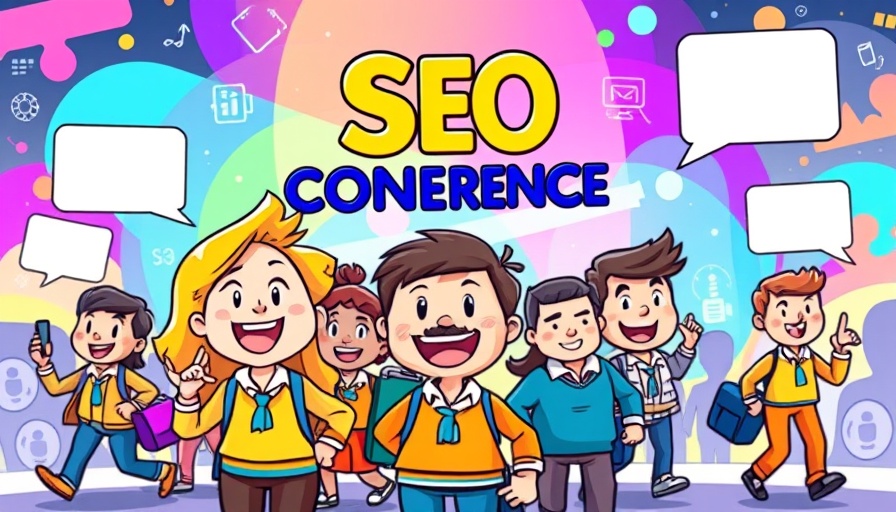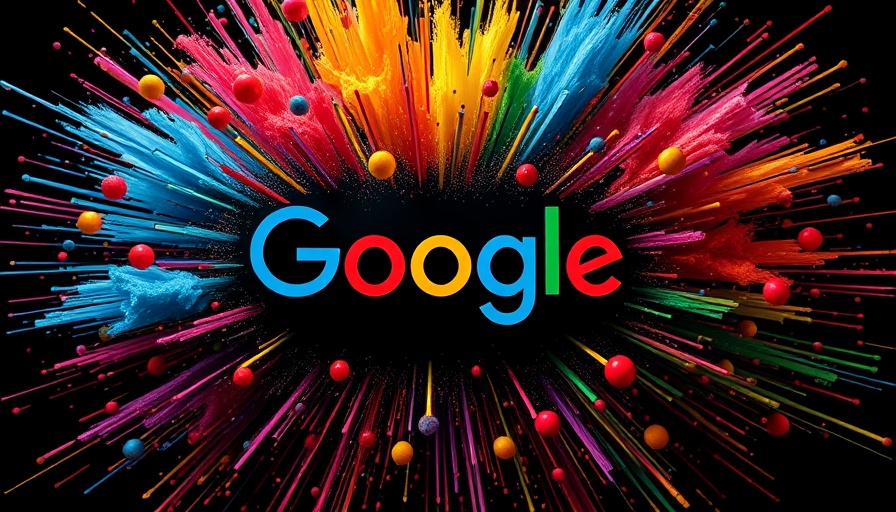SEO TRENDS
Navigating the Rising Google Search Ranking Volatility: Essential Updates for Small Business Owners
11
The Rising Tide of Google Search Ranking Changes
As an ever-evolving giant in the digital landscape, Google continuously pushes the boundaries of what it means to rank effectively in search results. Recent reports of intensified volatility in search rankings—particularly around April 16th—have stirred the SEO community, eliciting both concern and curiosity among small business owners, marketers, and agencies alike.
What’s Driving the Recent Ranking Volatility?
This latest surge in ranking fluctuations appears to align with several underlying tensions within Google’s algorithms. SEO tracking tools, including Semrush and Mozcast, recorded significant spikes in activity, indicating that websites are being reassessed as Google refines its search parameters. While some website owners report a drop in traffic, others are experiencing an uptick, demonstrating that Google's algorithm updates are rolling out unevenly.
Community forums, such as those on WebmasterWorld and Black Hat World, echo these sentiments, revealing a diverse range of experiences. Users have reported feeling as if their websites are under siege: 'First heavy traffic, then suddenly stop and nothing works anymore' lamented one frustrated marketer. This uncertainty has many questioning if they are truly in control of their online presence or merely at the whim of Google's latest algorithm changes.
Is Your Website Feeling the Heat?
For small business owners and marketers, these fluctuating rankings may feel daunting. Understanding the implications of a ranking update is crucial to adjusting strategies in real-time. The nature of this recent volatility suggests that websites with outdated designs or non-SEO-friendly structures might be adversely affected. Reports indicate that sites failing to meet modern user expectations—like responsiveness and speed—are suffering from lost visibility in search results.
It’s essential for businesses to examine their website analytics to quantify any shifts in traffic. If your site has been significantly impacted, it may be time to reassess your online strategies. Consider optimizing your website’s design and integrating best practices in SEO to improve your chances of ranking favorably.
A Glimpse into Future Trends in SEO
As Google continues to evolve its search algorithms, the industry must pay close attention to emerging trends. The AI revolution is influencing how users search and what they expect from their results. As machine learning gains prominence, optimizing content for AI-focused searches becomes vital. Future updates may prioritize high-quality content that is not only informative but deeply engaging for users.
Moreover, businesses should explore AI-driven tools designed for SEO analysis, which can aid in adjusting your strategy according to changing algorithms. By leveraging these advanced technologies, small business owners can create content that resonates with both users and search engines, enhancing their chances of succeeding in an increasingly competitive online space.
The Emotional Impact of SEO Changes on Business Owners
The emotional toll of watching one's website flounder in the search rankings cannot be underestimated. Many business owners pour their heart and soul into their digital identities, and sudden changes can leave them feeling disheartened, anxious, and out of control. Remember, this fluctuation is part of a larger landscape driven by human behavior and digital trends.
To combat this stress, business owners should engage in a community—whether through forums, social media, or local meetups—to share insights and strategies with peers undergoing similar challenges. This communal support can bolster resilience and inspire innovative solutions to navigate the unpredictable waters of SEO.
Take Action and Adapt
In the world of digital marketing, adaptation is key. As volatile search rankings become the norm, small business owners must embrace agility in their SEO strategies. By continuously monitoring performance analytics and algorithm updates, businesses can anticipate changes and react before they become detrimental.
As we evolve alongside Google, remember to prioritize quality, user-centric content that aligns with the expectations of today’s internet users. Armed with the right strategies and a network of support, your business can not only survive but thrive amid the uncertainties of SEO.
Stay informed and proactive; the health of your digital presence depends on it.

 Add Row
Add Row
 Add
Add

 Add Row
Add Row
 Add Element
Add Element

























 Add Row
Add Row
 Add
Add

